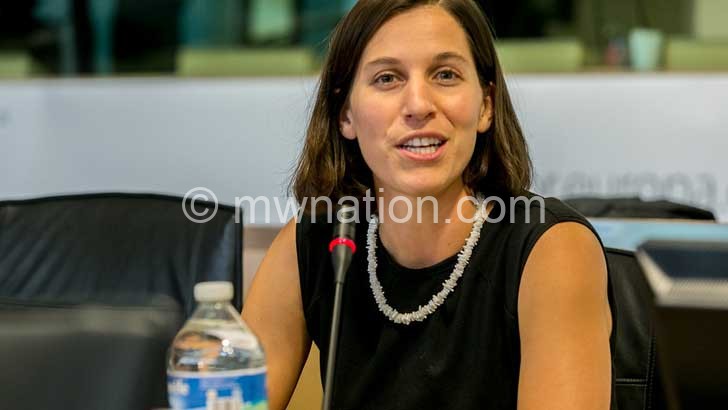EU gets tough on human rights abuses
The European Union (EU) has agreed on a new mechanism to punish perpetrators of human rights abuses around the world, The Nation has learnt.
The EU can now ban perpetrators from entering the bloc, freezing their assets in the EU and prohibiting any EU person from making funds and economic resources available to them.

The EU global human rights sanctions regime was adopted by the Council of Ministers on December 7 2020, providing the bloc with a new sanctions framework that will enable the targeting of individuals and entities responsible for, involved in or associated with serious human rights violations and abuses worldwide.
With the new sanctions regime in place, the specific targeted human rights abuses include genocide, crimes against humanity, serious human rights violations or abuses such as torture, inhuman or degrading treatment or punishment, slavery, extrajudicial, summary or arbitrary executions and killings, enforced disappearance of persons and arbitrary arrests or detentions.
It also covers systematic and serious trafficking in human beings, sexual and gender-based violence, abuse of freedom of peaceful assembly and association, abuse of freedom of opinion and expression, and abuse of freedom of religion or belief.
In a written response, Charge d’affaires at the EU delegation in Malawi Aurelie Valtat confirmed that Malawi is also a potential target of the new regime.
She said: “The new EU human rights global sanctions regime is a centrally managed regime targeting severe violations of human rights. Decisions are taken at ministerial level with involvement from EU institutions and member States.
“The EU in Malawi can merely suggest entities or individuals that could be subjected to this regime in the country, so yes Malawi is also a potential target of this regime. The EU has decided that the sanctions will also be monitored centrally from Brussels for financial sanctions, and in the case of travel bans, by member States individually.”
Quizzed on how best individual Malawians and the governing Tonse Alliance can ensure strict adherence to the regime, Valtat stressed that: “There is no adherence to a sanctions regime, it is a reactive tool only. The Malawi Government is perfectly capable of upholding human rights in Malawi and has the necessary national and international legal frameworks to do so.”
However, according to the EU website, the new regime will not replace existing sanctions regimes, but gives the EU a new tool to coordinate any punitive measures on rights with United States of America Government.
In an interview yesterday, Ministry of Justice spokesperson Pilirani Masanjala said the ministry acknowledges the documentation related to the decision by EU Human Rights Council, but referred The Nation to government spokesperson Gospel Kazako, who is also Minister of Information.
Through his brief response, the minister said: “We will beat their [EU] standards on matters of human rights. We are a very fluent administration when it comes to observance of human rights”
By December 7 2020, the EU had already listed more than 200 individuals and entities for human rights violations or abuses in its existing geographical sanctions regimes.
Meanwhile, Human Rights Defenders Coalition (HRDC) chairperson Gift Trapence yesterday commended the union for coming up with the measures.
He said: “These measures will help to end impunity by countries, including African governments who have been perpetrators of human rights abuse. It’s high time we had systems like these to strengthen the protection of human rights. HRDC wishes such sanctions to be extended to corruption which is one of the evils curtailing the enjoyment of rights by the majority of poor and vulnerable Africans.”





